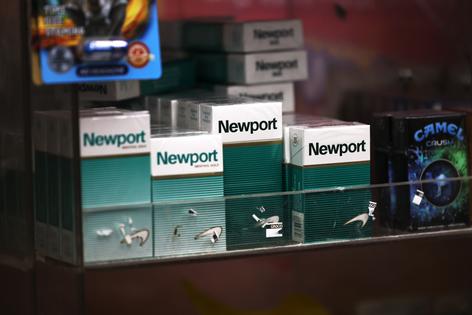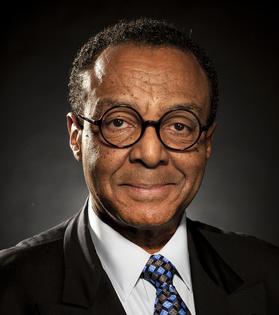Clarence Page: A ban on menthol cigarettes? It’s about time
The Food and Drug Administration’s new plan to ban sales of menthol-flavored cigarettes reminded me, as so much of life does, of an often-quoted scene in “The Godfather.”
In a discussion by mob leaders of the rising and risky business of illegal drug trafficking, boss Don Giuseppe declares: “In my city, we would keep the traffic in the dark people, the colored. They’re animals anyway, so let them lose their souls.”
No objections are raised to his language or his logic. I know that we African Americans can be no less paranoid than any other historically exploited group but, as that scene from “The “Godfather” reminds us, some conspiracies are real.
That’s not to say I believe tobacco companies set out to poison Black Americana with their product. All I know is that they set out to make a profit and we just happened to disproportionately become addicted to their products.
I know firsthand. I was addicted to cigarettes, beginning with menthols, for several decades until an uncle’s death from lung cancer persuaded me that, yes, it was time for me to quit.
African American men have the nation’s highest rates of lung cancer, according to the Centers for Disease Control and Prevention.
After decades of incremental moves by health officials to put a pinch on other forms of tobacco consumption, the FDA on Thursday announced a plan to ban sales of menthol-flavored cigarettes and cigars.
The ban is expected to have its biggest impact on Black smokers, nearly 85% of whom happen to smoke menthols, according to a government survey, compared with nearly 47% of Hispanic smokers, 38% for Asian smokers and nearly 29% of white smokers.
It’s about time. Public health officials and Black health advocates have long sought a menthol ban. The landmark Tobacco Control Act of 2009 gave the FDA authority to regulate tobacco products but curiously exempted menthol from tobacco flavors that would be banned.
That omission occurred despite evidence that menthol was particularly appealing to Black smokers and young people who were just beginning to take up the pernicious habit. About half of teenage smokers told survey takers that they smoked menthols.
Smoking rates overall have been falling for 20 years, with a small uptick reported in 2020 that coincided with the pandemic. Nevertheless, cigarettes are estimated to cause 480,000 deaths each year. It was not for nothing that my generation and our elders called them “cancer sticks” and “coffin nails.”
In 2013, the FDA declared menthol to be “likely associated with greater addiction,” since menthol smokers showed greater signs of dependence and were less likely to quit successfully.
Yet it took until now to call for a ban on menthol flavoring against heavy pushback from the industry and its Black community allies, not because they like cigarettes but out of fear of the “over-policing” that enforcement of the ban might bring.
To understand what they mean, one need only remember the video-recorded death of Eric Garner, an unarmed Black New York man who died in a prohibited chokehold when police arrested him for selling loose single cigarettes on a Staten Island sidewalk in 2014.
So, while NAACP President Derrick Johnson called the ban a “win for justice” and a “victory for Black America,” the Rev. Al Sharpton, president of the National Action Network, has arranged a meeting with the Biden administration, saying the ban would lead Black smokers to turn to dangerous alternatives, including criminal activity.
Not insignificantly, Sharpton also has acknowledged that a major tobacco lobbying firm, King & Spalding, has supported his organization for two decades, although he would not say by how much.
If cigarettes or cigars are outlawed, by his reasoning, only outlaws will smoke. He’s not alone in his reasoning. To avoid creating new crises of over-policing, we should penalize tobacco sales and distribution, not use.
A ban on sales of what we know to be dangerous products is not a perfect solution. But, after years of mounting tobacco-related illnesses and deaths, it moves us in the right direction. When cigarettes are outlawed, for example, it’s harder for me to fall back into my old unhealthy habit.
(E-mail Clarence Page at cpage@chicagotribune.com.)
©2022 Clarence Page. Distributed by Tribune Content Agency, LLC.
(c) 2022 CLARENCE PAGE DISTRIBUTED BY TRIBUNE MEDIA SERVICES, INC.



























Comments